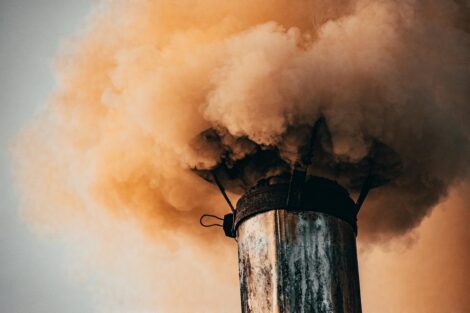
The United Nations reported that greenhouse fuel ranges within the environment surged once more in 2023, presenting the chance that additional international warming is prone to observe.
The World Meteorological Group (WMO) Secretary-Normal Celeste Saulo warned humanity is unlikely to satisfy the Paris Settlement’s objective.
The Paris Local weather Accord entails quite a few international locations pledging to decrease international warming to 2°C. Nevertheless, the Greenhouse Gasoline Bulletin cautions that the world faces a “potential vicious cycle.”
Article continues after this commercial
How a lot have greenhouse fuel ranges elevated?
📈 Document-breaking greenhouse fuel ranges surged once more in 2023!
📢 Keep knowledgeable for efficient #ClimateAction—discover the World Meteorological Group’s full Greenhouse Gasoline Bulletin for extra: https://t.co/7QuklMHZ5g pic.twitter.com/MTY8avSEbP
— World Meteorological Group (@WMO) October 28, 2024
In response to the official WMO web site, carbon dioxide (CO2) is accumulating within the environment by greater than 10 % inside 20 years.
READ: Momentick helps companies observe their fuel emissions with AI
Which means CO2 ranges have been increase within the air quicker than ever in recorded historical past. Particularly, globally averaged floor concentrations reached 420.0 components per million (ppm).
Article continues after this commercial
That’s 151 % of pre-industrial ranges earlier than 1750, based mostly on the International Environment Watch’s long-term observations.
“One other yr, one other document,” WMO chief Saulo mentioned.
“This could set alarm bells ringing amongst decision-makers. We’re clearly off observe to satisfy the Paris Settlement objective of limiting international warming to properly under 2°C…,” Saulo additionally mentioned.
The WMO Greenhouse Gasoline Bulletin is among the group’s flagship publications for informing the UN Local weather Change convention.
It’s now in its twentieth challenge, and the carbon dioxide degree has elevated by 11.4 % (42.9 ppm), greater than 377.1 ppm in 2004.
“The Bulletin warns that we face a possible vicious cycle,” mentioned WMO Deputy Secretary-Normal Ko Barrett.
“Pure local weather variability performs a giant function in carbon cycle. However within the close to future, local weather change itself may trigger ecosystems to grow to be bigger sources of greenhouse gases.”
Consequently, extra CO2 may keep within the environment to speed up international warming. These local weather feedbacks are essential issues to human society,” Barrett warned.

